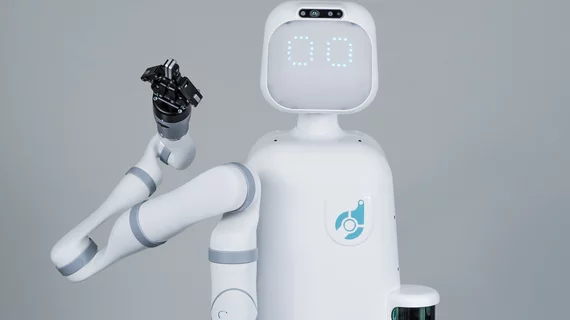Assistive robot performs some nursing tasks in Dallas hospital
Nurses at a Dallas hospital are embracing the presence of an assistive robot named Moxi following a month-long pilot.
Since the fall, a nurse-assisting robot Moxi has been working with the clinical staff of the neurology unit at Texas Health Presbyterian Hospital Dallas. The hospital is the first to deploy the robot, which is designed to help perform routine tasks in a clinical setting and, in turn, provide more time for nurses and staff to focus on patient care.
“Moxi is a teammate. She’s here to actually relieve some of the pressure [from] tasks and the hunt and gather that we all have to do, all day, that takes our time away from the patient,” Joshua Tippy, BSN, RN, nurse manager at Texas Health Dallas, said in a video.
Moxi, designed by Diligent Robotics, is a socially intelligent robot that uses autonomous AI mapping, sensors, and a flexible arm to grasp things, navigate, and move quickly and efficiently to complete tasks without assistance.
Elsewhere in the industry, researchers at the University of Toronto are currently developing the “brain” of an AI robot that will help decrease emergency room wait times in hospitals.
During a month-long pilot, the hospital used Moxi to help stock patient rooms, remove dirty linens and take samples to the lab. One nurse estimated they typically spend about 30 percent of their time fetching things for patients during their shifts. With Moxi around, they don’t have to perform tasks such as getting a patient an extra blanket, because the robot can do it for them.
The hospital hopes Moxi will provide them better insight into how nurses spend their time during shifts and how much of that time can be spent on patients.
“It’s been really amazing to look at what we’re doing here in the very first phase, very first hospital deployment of a care-assistive robot and what the future could hold,” Stefanie Beavers, MSN, RN, neuroscience nursing director at Texas Health Dallas, said in a video. “Just the impact that we’ve seen for our team within this last month, it’s amazing what we could potentially give to healthcare in the future.”

